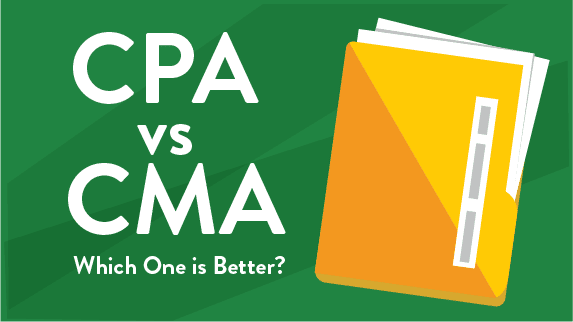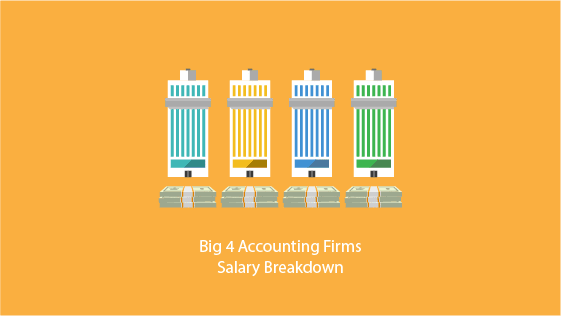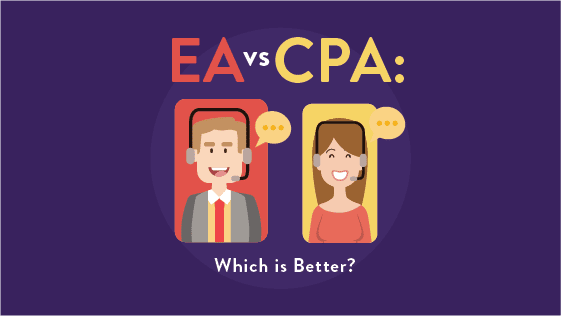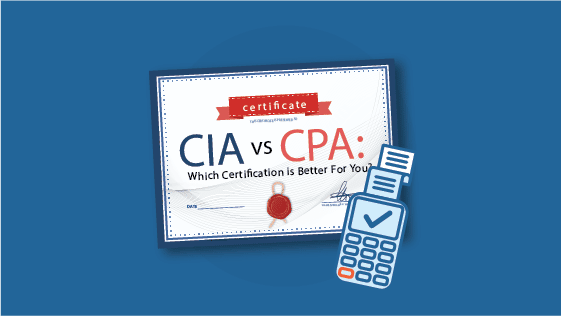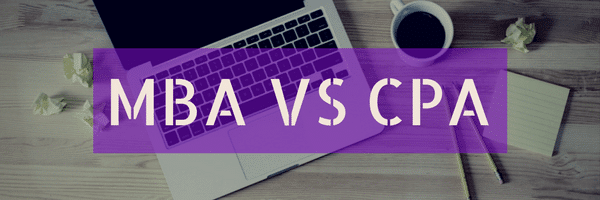
Are you at a crossroads in your academic journey, grappling with the decision between pursuing a CPA license or an MBA degree? You’re not alone. Countless Reddit threads debate this pivotal choice and how it can shape your career trajectory and align with your personal aspirations. Understandably, it’s a decision that comes with its fair share of uncertainty and questions.
Rather than solely relying on external advice, it’s crucial to reflect on what aligns best with your career objectives and personal interests. In this guide, we’ll delve into the essential aspects of both paths – CPA and MBA—providing you with clear, actionable information. Our goal is to empower you with the knowledge needed to make an informed decision that resonates with your future career plans and aspirations.
Let’s explore these options together, simplifying your decision-making process and bringing clarity to your future career possibilities.
What is a CPA?
A Certified Public Accountant (CPA) is more than just a title; it’s a prestigious accreditation in the finance industry, granted by the American Institute of Certified Public Accountants (AICPA). Recognized as a hallmark of excellence and expertise in accounting, obtaining a CPA license is a significant professional milestone.
To earn this distinction, you must conquer the rigorous CPA exam administered by the AICPA. This exam doesn’t just test your knowledge; it immerses you in the core principles of accounting, auditing, and financial management. It challenges you to apply these concepts practically, preparing you for a dynamic career in the field.
As a CPA, you’re not just an accountant; you become a trusted expert in tax law and financial advising. Whether you dream of climbing the corporate ladder in a prestigious firm, thriving in a dynamic small business environment, or even establishing your own practice, the CPA opens doors to diverse and rewarding career paths.
Reasons to Pursue a CPA
- Analytical Mindset: You have a knack for numbers and enjoy dissecting complex financial data to uncover insights.
- Detail-Oriented: You pay close attention to details and understand that accuracy is crucial in financial reporting and auditing.
- Ethical Standards: You value integrity and ethical decision-making, traits essential for upholding the public trust in financial reporting.
- Problem-Solving Skills: You’re driven by the challenge of solving intricate financial puzzles and providing strategic solutions.
- Adaptability: The ever-evolving landscape of tax laws and regulations excites you, and you’re eager to stay ahead in the field.
- Communication Skills: You’re not just about numbers; you can communicate complex financial information clearly to clients and stakeholders.
- Ambition for Growth: You aspire to hold significant roles in finance, such as CFO or financial advisor, where your expertise can influence business decisions.
- Desire for a Diverse Career: You’re attracted to the versatility of a CPA, opening opportunities in various sectors like public accounting, corporate finance, and consultancy.
Job Opportunities for CPAs
Certified Public Accountants (CPAs) have a wide array of job opportunities in various fields. Their expertise in accounting, auditing, and financial management opens doors to diverse career paths. Here are some unique fields and job roles CPAs can explore:
Unique Fields for CPAs
- Public Accounting: Specializing in areas like auditing, tax, and consulting for clients ranging from individuals to corporations.
- Corporate Finance: Working in finance departments of corporations, handling budgeting, financial planning, and risk management.
- Government Accounting: Managing and auditing government agencies’ finances and working in public sector roles.
- Forensic Accounting: Specializing in investigating financial fraud and disputes.
- Non-Profit Organizations: Overseeing financial management in charities, educational institutions, and other non-profits.
- International Accounting: Dealing with global financial transactions and international tax laws.
- Environmental Accounting: Focusing on accounting practices that reflect environmental costs of business activities.
Job Roles
- Chief Financial Officer (CFO)
- Auditor
- Tax Advisor
- Management Consultant
- Financial Analyst
- Forensic Accountant
- Internal Auditor
- Compliance Officer
Expected Salary for CPAs
The salary for CPAs can vary significantly based on location, experience, and the specific industry. According to recent data:
- The average annual salary for CPAs in the United States is approximately $86,000. Source: Big4AccountingFirms.org
- In some states, such as Washington and New York, the average annual salary can be as high as $111,698 and $99,676, respectively. Source: ZipRecruiter
- The Bureau of Labor Statistics reports that the average CPA salary, without bonuses, is around $119,000 per year.
These figures indicate that CPAs have the potential for lucrative earnings, especially with experience and specialization in high-demand areas.
Related CPA Blog Posts & Resources
- Deep Dive: Top 100 CPA Exam Statistics
- Foreign Credential Evaluation for the CPA Exam
- How to Become a CPA
- How Do International Students Apply for the CPA Exam
What is an MBA?
A Master of Business Administration (MBA) is not just a degree; it’s a gateway to the vast world of business leadership and management. Esteemed globally, an MBA signifies a comprehensive understanding of business practices and strategies. It’s a transformative journey that equips you with the skills to navigate and excel in the complex business landscape.
Embarking on an MBA program, you immerse yourself in a diverse curriculum covering finance, marketing, operations, strategy, and more. This holistic approach is designed to sharpen your analytical abilities, enhance your decision-making skills, and broaden your understanding of how businesses operate in a global context.
An MBA graduate is not just a business professional; you are a leader, a strategist, and an innovator. Whether your aspirations lie in steering a multinational corporation, launching a startup, or transforming existing business practices, an MBA opens doors to influential roles across industries. The first step for anyone serious is to find a top MBA admissions consultant to help you get accepted in the best MBA program possible.
Reasons to Pursue an MBA
- Strategic Thinking: You have a passion for devising and implementing business strategies.
- Leadership Skills: You aspire to lead teams, manage projects, and drive organizational success.
- Innovative Mindset: You are driven by the desire to innovate, whether in processes, products, or business models.
- Global Perspective: You’re interested in understanding and navigating international business environments.
- Networking Savvy: You value building a broad network of professional contacts across various industries.
- Versatility: You seek a career that offers flexibility and diverse opportunities across sectors.
- Entrepreneurial Spirit: You dream of starting your own business or bringing entrepreneurial thinking to an existing company.
- Commitment to Continuous Learning: You are eager to keep learning and evolving in your professional life.

Job Opportunities for MBA Graduates
MBA graduates are sought after for their well-rounded business acumen and leadership potential. Here are some of the fields and roles they often pursue:
Unique Fields
- Consulting: Providing expert advice to improve business performance.
- Finance & Banking: Specializing in corporate finance, investment banking, or financial planning.
- Technology Management: Leading tech-driven business strategies in innovative companies.
- Healthcare Management: Overseeing operations in healthcare institutions.
- Entrepreneurship: Launching and managing startups or new business ventures.
- Marketing & Sales: Driving business growth through strategic marketing and sales leadership.
- Human Resources: Managing and developing a company’s workforce.
- Operations Management: Streamlining operations for efficiency and effectiveness.
Job Roles
- Management Consultant
- Investment Banker
- Product Manager
- Marketing Director
- Financial Analyst
- Human Resources Manager
- Operations Manager
- Entrepreneur/Startup Founder
Expected Salary for MBAs
The earning potential for MBA graduates varies widely based on the industry, location, and experience. Recent data indicates:
- The average annual salary for MBA graduates in the United States is around $125,000. Source: BestColleges.com
- Graduates from top business schools can expect even higher salaries, with reports of average salaries (including bonuses) reaching up to $190,989. Source: Coursera
- In specific states like Indiana, Minnesota, and New Mexico, the average annual salaries for MBA graduates can range from $152,423 to $154,218. Source: ZipRecruiter
CPA vs MBA: Choosing Your Career Path
When it comes to selecting between a CPA and an MBA, the decision hinges on your personal career aspirations and the professional landscape you envision for yourself. Both paths offer distinct opportunities and cater to different skill sets and interests. Here’s a comparative look to guide you in making an informed choice:
CPA: A Focus on Specialized Financial Expertise
- Specialization in Accounting and Finance: CPAs are experts in accounting, tax, and financial reporting, making them indispensable in these specific domains.
- Roles and Responsibilities: As a CPA, you can expect roles that are deeply entrenched in financial management, auditing, compliance, and taxation.
- Industry Recognition: A CPA is highly regarded in the accounting and finance sectors, often seen as a prerequisite for high-level accounting roles.
- Career Trajectory: Typically, CPAs progress through accounting-specific roles, potentially leading to positions like Chief Financial Officer or senior roles in financial consulting.
MBA: A Gateway to Diverse Business Opportunities
- Broad Business Acumen: An MBA provides a comprehensive understanding of various business functions like marketing, strategy, operations, and human resources.
- Versatile Career Options: MBA graduates often find themselves in diverse roles, from strategic management to consulting, and even entrepreneurial ventures.
- Leadership and Management Focus: The MBA is tailored for those aspiring to leadership roles, preparing graduates for managerial positions across different sectors.
- Global and Strategic Perspective: With an MBA, you gain insights into global business trends and strategic thinking, equipping you for decision-making roles in various industries.
Intersection of CPA and MBA
- Combined Strengths: Pursuing both CPA and MBA can create a powerful combination of deep financial expertise and broad business knowledge, opening doors to versatile and high-level career opportunities.
- Enhanced Marketability: Having both qualifications can significantly enhance your marketability, making you attractive to a wider range of employers and industries.
Making the Decision
- Align with Your Career Goals: Consider where you see yourself in the future. Do you aspire to be a financial expert or a business leader?
- Evaluate Your Interests and Skills: Reflect on your strengths and interests. Are you more inclined towards detailed financial work or broad-scope business strategies?
- Consider Long-Term Prospects: Think about the long-term prospects and how each qualification aligns with your career longevity and growth.
CPA vs MBA Salaries
When comparing the salary potential of CPAs and MBAs, it’s important to consider various factors such as industry, location, experience, and the specific roles pursued. Here’s a detailed comparison with reputable sources to give you a clearer picture:
CPA Salaries
- Average Salary: CPAs in the United States have an average annual salary of approximately $86,000. Source: Big4AccountingFirms.org
- State Variations: In states like Washington and New York, the average annual salary can be as high as $111,698 and $99,676 respectively. Source: ZipRecruiter
- Top Earnings: The Bureau of Labor Statistics reports that the average CPA salary, without bonuses, is around $119,000 per year. Source: UWorld
MBA Salaries
- General Average: The average annual salary for MBA graduates in the United States is around $125,000. Source: BestColleges.com
- Graduates from Top Business Schools: These graduates can expect higher salaries, with reports of average salaries (including bonuses) reaching up to $190,989. Source: Coursera
- State-Specific Salaries: In states like Indiana, Minnesota, and New Mexico, the average annual salaries for MBA graduates range from $152,423 to $154,218. Source: ZipRecruiter

Key Salary Takeaways
- CPA Salary Potential: CPAs generally have a strong salary base, especially with experience and in certain states. Their expertise in accounting and finance is highly valued in various sectors.
- MBA Salary Prospects: MBAs often have a higher starting salary potential, particularly those from prestigious business schools. Their broad skill set in business management opens doors to diverse high-paying roles.
- Industry and Role Impact: Both CPAs and MBAs can see significant salary variations depending on the industry they choose and the roles they occupy. MBAs might have a broader range of industries to choose from, potentially leading to higher salaries in certain sectors.
Both CPAs and MBAs have substantial earning potential. The choice between the two should also consider personal interests, career aspirations, and the type of work environment you thrive in, in addition to salary prospects.
CPA vs MBA: Certification Costs
The journey to becoming a CPA or earning an MBA involves various costs, which can vary based on several factors. Here’s an updated and detailed look at the expenses associated with each path:
CPA Certification Costs
- Undergraduate Tuition: The cost of your undergraduate education is the foundational expense. This varies widely depending on the institution.
- CPA Exam Preparation: CPA prep courses exam can cost around $2,000, though this can vary based on the course provider and materials included.
- Exam Fees: The CPA exam fees differ by state. On average, you might spend about $1,500 to sit for all four sections. This includes application and examination fees, which vary state by state. Source: AICPA
- Licensing Fee: The initial licensing fee averages around $150, but this can vary based on the state board of accountancy.
- Continuing Professional Education (CPE): CPAs must complete CPE courses to maintain their license. Annual costs can range up to $4,000, depending on the state requirements and the prep courses chosen.
Tuition Fees
- Average Tuition Cost: The cost of MBA tuition can vary greatly. On average, tuition fees for MBA programs in the United States range from $30,000 to $100,000 per year, depending on whether the institution is public or private. Top-tier programs can exceed this range.
- Public vs. Private Institutions: Public universities generally offer lower tuition rates compared to private institutions. However, private institutions often have more resources and networking opportunities.
Additional Expenses
- Books and Materials: These can cost up to $2,000 annually, varying by program and coursework requirements.
- Technology Fees: Many MBA programs require students to have access to specific software or hardware, adding to the overall cost.
- Living Expenses: If you choose to study on-campus, consider the cost of room and board, which can significantly add to your expenses. Living costs vary based on the program’s location.
- Opportunity Cost: One of the most significant costs of pursuing an MBA full-time is the foregone salary. If you leave a job to study, this loss of income should be factored into your decision.
Online and Part-Time Programs
- Cost-Effective Alternatives: Online and part-time MBA programs are often more affordable and allow students to continue working while studying, reducing the opportunity cost.
- Flexibility and Accessibility: These programs offer greater flexibility, making them popular among professionals who wish to balance work and study.
Financial Aid and Scholarships
- Scholarships and Grants: Many business schools offer scholarships, grants, and fellowships to help offset tuition costs.
- Student Loans: Federal and private student loans are available, but they add to the long-term financial commitment of an MBA.
Return on Investment
- Higher Earning Potential: Despite the high upfront costs, an MBA can significantly increase your earning potential and career opportunities, making it a worthwhile investment for many.
In summary, while the costs of an MBA program can be substantial, they represent an investment in your future career growth and earning potential. It’s important to consider not only the immediate expenses but also the long-term benefits and opportunities that an MBA can provide.
If-Then Guide: CPA vs MBA Decision Making
To further clarify your decision between pursuing a CPA or an MBA, consider this if-then guide, which aligns specific career aspirations and interests with each path:
If You Want To, Then Choose CPA
- Specialize in Accounting and Taxation: If you’re passionate about diving deep into accounting standards, tax laws, and financial compliance.
- Pursue a Career in Auditing or Forensic Accounting: If you’re interested in the investigative aspects of finance and compliance.
- Work in High-Level Financial Reporting: If you aim to be an expert in creating and analyzing financial statements.
- Become a Recognized Tax Expert: If you see yourself advising on complex tax matters and strategies.
- Hold Key Positions in Accounting Firms: If your goal is to climb the ladder in public accounting or corporate finance departments.
If You Want To, Then Choose MBA
- Lead and Manage Diverse Teams: If you aspire to hold leadership positions where you manage teams across various business functions.
- Develop Broad Business Strategies: If you’re interested in shaping and implementing business strategies at a high level.
- Engage in Global Business Operations: If you want to understand and navigate international markets and business practices.
- Drive Organizational Change and Innovation: If you’re inclined towards transforming business processes and fostering innovation.
- Explore Entrepreneurial Ventures: If you dream of starting your own business or leading startup initiatives.
If You Want a Combination of Both
- Blend Financial Expertise with Strategic Acumen: If you wish to combine detailed financial knowledge with broad business strategy.
- Maximize Career Flexibility and Opportunities: If you aim to keep your career options diverse and expansive across industries.
- Enhance Your Leadership in Financial and Business Domains: If you want to be equipped to take on hybrid roles that require both financial and general business expertise.
This if-then guide is designed to help you align your personal career goals and interests with the educational path that best suits your aspirations, whether it be the specialized focus of a CPA or the broad business perspective of an MBA.
Deciding Between CPA and MBA: Tailoring Your Career Path
Choosing between becoming a CPA and an MBA hinges on your unique career aspirations, strengths, and the professional landscape you envision for yourself. Here’s an enhanced perspective to help guide your decision:
Opt for an MBA if:
- Leadership and Strategy Appeal to You: If you’re drawn to roles that involve strategic decision-making, leading teams, and managing business operations, an MBA is your pathway to these leadership opportunities.
- Broad Business Horizons Excite You: An MBA is ideal if you’re interested in a wide-ranging career in business, from consulting to entrepreneurship, offering versatility and a broad skill set.
- You Aim for Diverse Industry Exposure: With an MBA, you’re not limited to one sector; it opens doors across various industries, enhancing your adaptability in the business world.
Choose CPA if:
- You Have a Passion for Numbers and Detail: If you thrive in roles that require precision, analytical skills, and a deep understanding of financial data, the CPA designation is your calling.
- Specialized Financial Roles Attract You: A CPA is essential for careers in accounting, auditing, and finance, especially if you aim to work in top accounting firms or finance departments.
- Regulatory and Compliance Roles Interest You: For those inclined towards roles involving compliance, tax law, and financial reporting, a CPA provides the necessary expertise and recognition.
Combining CPA and MBA
- Best of Both Worlds: Pursuing both a CPA and an MBA can be a strategic move, equipping you with comprehensive financial expertise and broad business acumen, making you highly versatile and marketable.
- Expanding Career Opportunities: This combination is powerful for those looking to hold pivotal roles in finance and business, offering a unique skill set that is highly valued across industries.
Making Your Choice
- Reflect on Your Career Vision: Consider where you see yourself in the future. Are you aiming for a specialized role in finance or a leadership position in business management?
- Assess Your Strengths and Interests: Are you more inclined towards detailed financial analysis or do you thrive in diverse business environments?
- Consider Financial and Time Investment: Both paths require a significant investment of time and money. Weigh these factors against the potential long-term career benefits and opportunities.
- Seek Advice and Conduct Research: Engage with professionals who have pursued CPA, MBA, or both. Their insights, combined with thorough research, can provide valuable perspectives.
In essence, the decision between a CPA and an MBA should align with your personal career goals, professional interests, and the type of work environment in which you thrive. Both paths offer distinct advantages and can lead to fulfilling and lucrative careers. Your choice should reflect your vision for your professional future and personal fulfillment.
FAQs
The primary difference lies in their nature and focus. A CPA (Certified Public Accountant) is a professional accreditation in accounting, emphasizing expertise in financial management, auditing, and taxation. It’s a credential that signifies a high level of proficiency in accounting practices. An MBA (Master of Business Administration), on the other hand, is an academic degree focusing on broad business management skills, including strategy, marketing, operations, and leadership. It prepares individuals for various managerial and leadership roles in the business world.
For a career specifically in finance, particularly in roles that require deep expertise in accounting, auditing, or taxation, a CPA is generally more suitable. It provides specialized knowledge and is often a requirement for senior accounting roles. However, for broader finance roles that involve strategic decision-making, business development, or management, an MBA might be more beneficial as it offers a wider perspective on business and management.
Yes, many professionals choose to pursue both a CPA and an MBA. This combination can be highly beneficial as it merges the specialized accounting expertise of a CPA with the broad business acumen of an MBA. This dual qualification can open doors to a wide range of high-level opportunities in both finance and general business management, making the individual highly marketable and versatile.
Salaries can vary widely based on the industry, location, and level of experience. On average, CPAs in the United States have an average annual salary of around $86,000, with potential to earn more in certain states or with more experience. MBA graduates, especially from top business schools, often have higher starting salaries, with averages around $125,000 and potentially higher for graduates from prestigious programs. However, both CPAs and MBAs can achieve significant earnings, especially with experience and in high-demand roles.
The costs for obtaining a CPA include undergraduate tuition, CPA exam preparation (around $2,000), exam fees (approximately $1,500), licensing fees, and ongoing costs for Continuing Professional Education (CPE). For an MBA, the costs include tuition fees (ranging from $30,000 to $100,000 per year), books and materials, technology fees, living expenses, and the opportunity cost of foregone salary if studying full-time. Both paths represent significant financial investments, but they also offer substantial returns in terms of career opportunities and earning potential.
The CPA involves a rigorous exam and specific accounting-focused education and experience requirements, making it challenging. An MBA’s difficulty varies by program but is generally more academically broad and less exam-focused.
A CPA typically requires several years, including education, exam, and experience. An MBA usually takes two years full-time, but part-time programs can extend to three or four years.
CPAs often pursue careers in accounting, auditing, and finance, with potential roles like CFO. MBAs have broader opportunities in various business sectors, including management, consulting, and leadership positions.
Bryce Welker is a regular contributor to Forbes, Inc.com, YEC and Business Insider. After graduating from San Diego State University he went on to earn his Certified Public Accountant license and created CrushTheCPAexam.com to share his knowledge and experience to help other accountants become CPAs too. Bryce was named one of Accounting Today’s “Accountants To Watch” among other accolades. As Seen On Forbes
